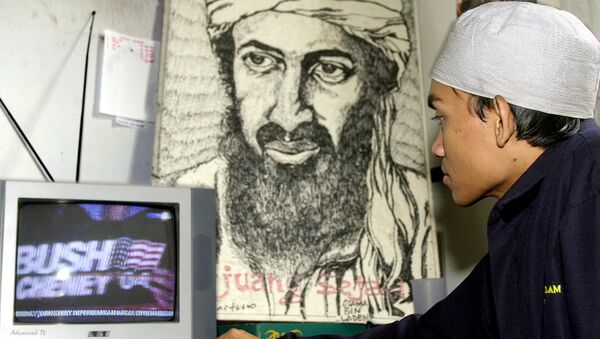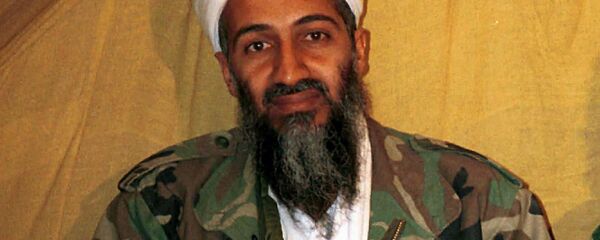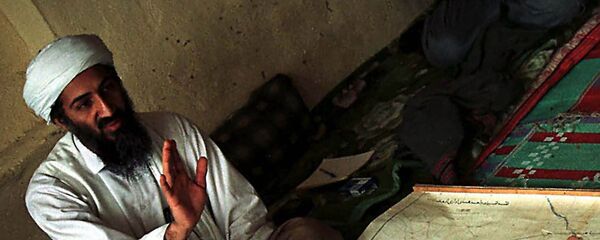"In an effort to further enhance public understanding of [al-Qaeda], the Central Intelligence Agency (CIA) on 1 November 2017 released additional materials recovered in the 2 May 2011 raid on [Osama bin Laden's] compound in Abbottabad, Pakistan," the CIA wrote in a statement accompanying the release of the information.
The statement also mentions that some material has been withheld: copyrighted material, sensitive material that could endanger national security, pornography, malware, and "blank, corrupted, and duplicate files." Those files will likely remain classified for many years to come, and possibly forever.
Now, the Foundation for Defense of Democracies (FDD), a right-wing foreign policy think tank based in Washington, DC, has analyzed over 460,000 new documents released by the CIA.
Perhaps the crown jewel of the released documents was bin Laden's private journal, which according to FDD contained "thoughts on the 2011 Arab uprisings, which he wanted his men to capitalize on."
One document included videos from the wedding of Osama's eldest son, Hamza bin Laden, believed to be the first known image of the reclusive Hamza as an adult. Hamza is believed to be alive and active in Pakistan. As recently as May 2017, Hamza released a video calling for his followers outside the Middle East to attack Jews, Americans, Westerners and Russians.
One file, believed to have been written by one of bin Laden's lieutenants, describes a deal between al-Qaeda and Iran. Al-Qaeda planned to strike US interests in "Saudi Arabia and the Gulf" in exchange for Iran offering them "money, arms, [and] training in Hezbollah camps in Lebanon." Hezbollah is a Lebanon-based and Iran-backed militant and political group considered a terrorist organization by the US bloc, but not Russia or China.
The document goes on to claim that the deal fell apart after al-Qaeda didn't hold up its end of the bargain. However, due to their mutual opposition to the US, al-Qaeda and Iran did not become enemies after the agreement fell through.
Another interesting find was the repository of videos on Osama's personal computer. Footage of the beheading of American hostage Jack Hensely was accompanied by animated films such as "Antz," "Cars," "Chicken Little" and "Ice Age" as well as viral videos such as "Charlie Bit My Finger." There was also a documentary entitled "Where in the World is Osama bin Laden?"
"Today's release of recovered al-Qaeda letters, videos, audio files and other materials provides the opportunity for the American people to gain further insights into the plans and workings of this terrorist organization," said CIA Director Mike Pompeo in a statement. "CIA will continue to seek opportunities to share information with the American people consistent with our obligation to protect national security."
On May 2, 2011, a group of Navy SEALS with the US Naval Special Warfare Development Group (commonly referred to as SEAL Team Six) infiltrated bin Laden's hideout in the mountains of Abbottabad, Pakistan. Bin Laden was killed, along with his son and three of his subordinates. No SEALS were killed or wounded.
Although the killing of the architect of terror attacks such as the September 11 attacks in the US and the Madrid train bombing in Spain was generally praised by the American public, the European Union and the United Nations, not everyone was pleased. Most in Pakistan disapproved of the US conducting military operations in their territory without permission from Islamabad, and some human rights groups such as Amnesty International criticized the US for allegedly killing bin Laden while he was unarmed.
Also criticized was Washington's decision to withhold photographic and DNA evidence of bin Laden's death, allegedly to protect the identities of the SEALS who participated in the raid. Congress has been pushing for the CIA to release their files for a long time, with House Intelligence Committee chair Rep. Devin Nunes (R-CA) calling the release "essential."
"Those documents need to get out, especially as you see the growth of al-Qaeda and [Daesh]," Nunes said in March. "Those documents need to get out for historians to have those records so that we can begin to build a history of what al-Qaeda was, what it is today, what they were thinking at the time."






